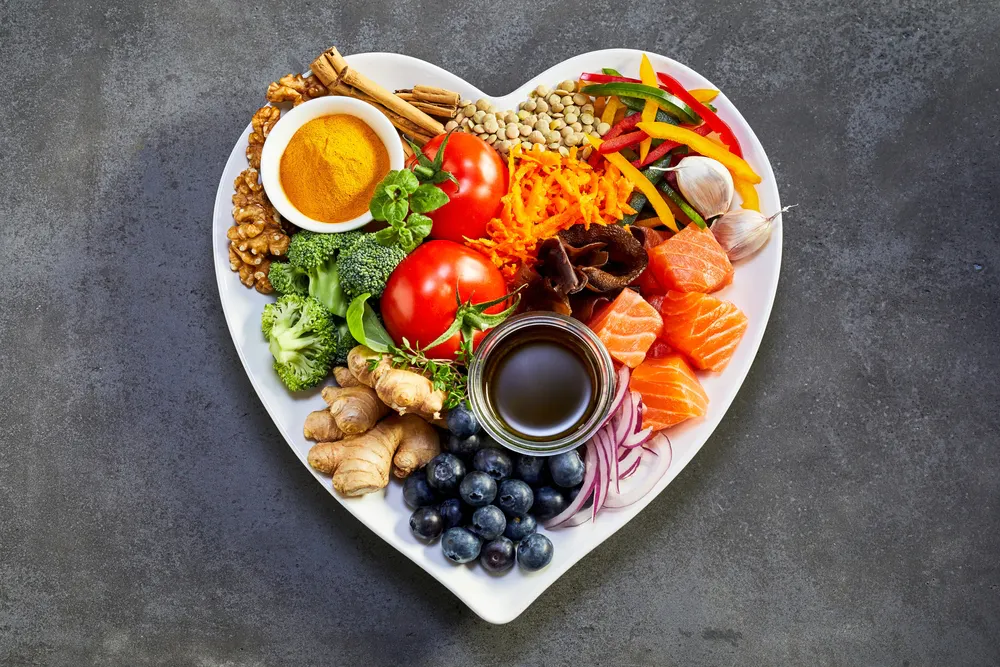The Link Between Diet and Hypertension: Unveiling the Connection
The saying “you are what you eat” rings particularly true for hypertension. Dietary choices significantly impact blood pressure management, making it essential to understand their relationship. By analyzing elements like sodium intake and nutrient-rich foods, we can clearly see how our food selections directly affect blood pressure regulation.

How Diet Affects Blood Pressure: Understanding the Relationship
Nutrition plays a fundamental role in maintaining healthy blood pressure. As our bodies process food, they utilize nutrients to regulate various functions, including cardiovascular health. A balanced diet filled with nutrient-dense foods promotes optimal blood pressure, while poor dietary habits can lead to hypertension.
Foods rich in essential nutrients – including fruits, vegetables, whole grains, nuts, seeds, legumes, fish, lean proteins, and low-fat dairy – support vascular health by providing vitamins, minerals, and fiber that help relax blood vessels and maintain proper circulation.
Conversely, foods high in sodium, saturated fats, trans fats, and added sugars can elevate blood pressure and increase cardiovascular risks. Those with hypertension or predisposition to it should minimize consumption of processed foods, sugary beverages, red meat, and fried items.
Sodium’s Role in Blood Pressure Regulation
Excess sodium intake directly impacts blood pressure elevation. Health guidelines recommend adults consume less than 5 grams (about one teaspoon) of salt daily, yet most individuals exceed this amount. Reducing processed, canned, and fast food consumption while seasoning meals with herbs, spices, or low-sodium alternatives can help maintain healthy sodium levels.
How Sugar Consumption Affects Blood Pressure
High sugar intake contributes to weight gain and may lead to insulin resistance or type 2 diabetes, both of which can cause arterial stiffness and hypertension. Sugar-sweetened beverages are particularly concerning due to their concentrated sugar content. Opting for water, herbal teas, or unsweetened drinks provides healthier alternatives.
Unhealthy Fats and Their Impact on Hypertension
Trans fats and saturated fats negatively affect blood pressure and cholesterol levels. Trans fats, found in fried foods and processed snacks, raise LDL (“bad”) cholesterol while lowering HDL (“good”) cholesterol. Saturated fats from animal products and certain plant oils should also be consumed in moderation to maintain cardiovascular health.
Lifestyle Modifications for Blood Pressure Management
Comprehensive lifestyle changes are vital for blood pressure control, even when using medication. Implementing new dietary patterns and exercise routines can yield significant improvements. Arvi Health’s hypertension specialists create customized plans addressing individual needs, offering guidance on nutrition, physical activity, stress reduction, and medication adherence to help patients achieve their health objectives.
In essence, managing hypertension requires conscious dietary choices. Selecting whole, nutrient-rich foods over processed options high in preservatives and sodium is crucial. A balanced diet emphasizing fruits, vegetables, lean proteins, and whole grains can lower blood pressure, reduce health risks, and enhance quality of life.
While lifestyle changes can be challenging, professional support from Arvi Health’s hypertension coaches makes the process manageable. Their holistic approach combines lifestyle adjustments with medical treatment, providing regular monitoring, personalized goal-setting, and ongoing support to foster sustainable health improvements and overall wellbeing.







